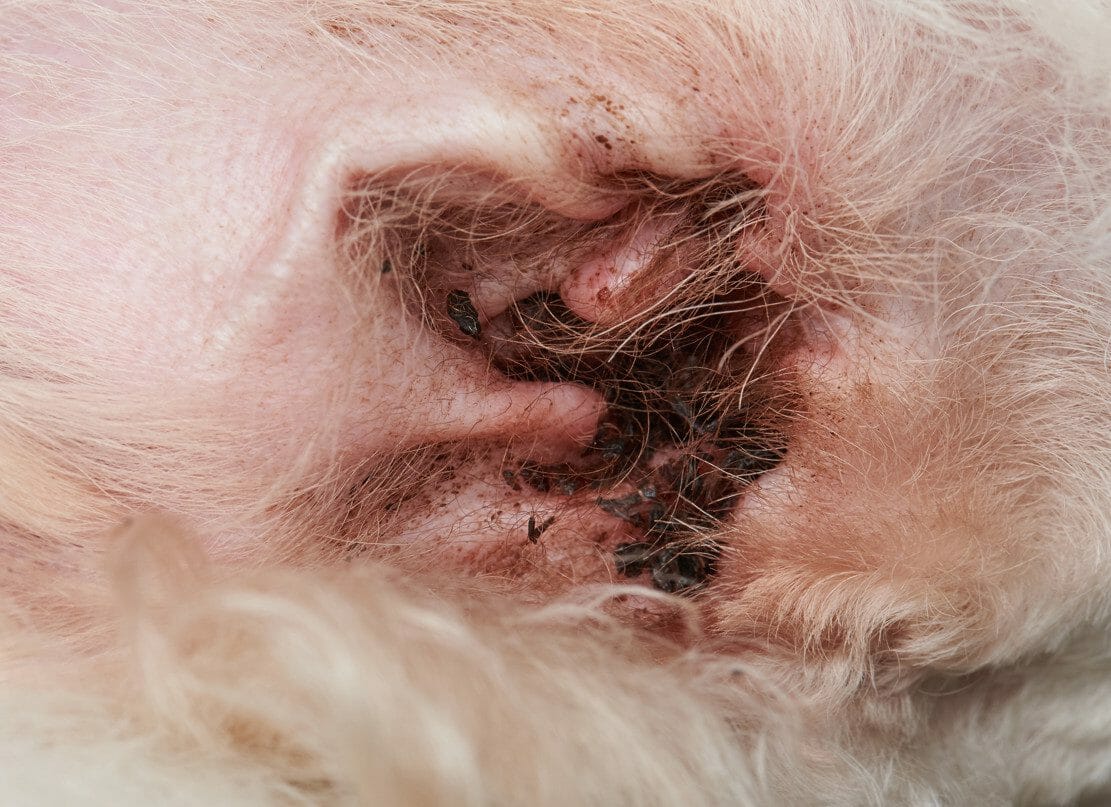Symptoms and Remedies
When it comes to ear infections, dogs are unable to hide their obvious discomfort. In most cases, the symptoms associated with this widespread condition make it quite clear as to what is afflicting the dog. For this reason, first-time dog owners should be aware of the signs and possible remedies associated with this condition.
What Causes Ear Infections in Dogs?
Dogs have a higher propensity for ear infections than humans due to the dog’s uniquely shaped ear canal. Their ear canal, which is in the form of an L-shape, makes water retention quite common. This shape can cause an infection to start. There are numerous possible causes that tend to bring about such a condition. Listed below are the most frequently seen causes of ear infections in canines:
- Allergies arising from food or diseases of the skin
- Excessive wax
- Ear mites
- Injuries to the ear
- Autoimmune disorders
- Moisture that is stagnant within the ear
- Frequent swimming (leads to built-up moisture)
Out of the causes mentioned above, allergic reactions are the most common trigger. No matter the cause, the infection is usually bacterial or fungal in nature.
Dog Breeds Prone to Ear Infections

There are specific dog breeds that are more prone to ear infections than others. For example, dogs with floppy ears experience more infections than dogs with pointy ears. This is because ears that hang down tend to keep moisture trapped. Due to the warm, moist environment that these long ears provide, bacteria are able to flourish.
Dog breeds prone to infections within the ear include:
- Basset Hounds
- Poodles
- Cocker Spaniels
- Old English Sheepdogs
- Labrador Retrievers
Even though these breeds see more diagnoses of this type of infection, all dog breeds are able to develop infections in their ears.
Main Categories of Ear Infections
The degree of severity can differ for ear infections. The deeper within the ear the infection goes, the more threatening it can be. Below are the three types of infections that can occur within the ear:
- Otitis externa: This type is the least invasive. It affects the outer lining of the ear canal. This is usually treated easily with over-the-counter medications. However, a vet should always be consulted first.
- Otitis media: This type causes an infection of the middle ear
- Otitis interna: This type occurs deep within the internal ear.
The last two types of infection—the otitis media and the otitis externa—pose a more serious threat to a dog’s health. If not treated in a timely manner, it may result in paralysis in the face, loss of hearing, and vestibular issues such as clumsiness.
Ear Infection Symptoms
The signs of an ear infection are usually quite noticeable due to the annoying discomfort the infection can cause in dogs. Dogs with these types of infections usually present with the following symptoms:
- Shaking the head excessively
- Frequent itching around the ears (which may also be an signs of fleas on dogs)
- Foul stench emanating from the ears
- Reddened ears
- Scratches and scabbing around the ears
- Discharge from the ears that is yellowish black in color

If these symptoms are seen in tandem, a trip to the vet is needed. It is important not to waste time since these infections can be painful to the dog and may potentially worsen if untreated. A vet will be able to fully evaluate the situation and determine the best method of treatment if the symptoms are indeed caused by an infection of the ear.
Some dogs may get relief with medications that can be purchased at the drugstore, while some infections may require prescription medication. Whatever the method, the dog’s personal vet will be able to make the most educated decision to help the dog recover quickly and safely.
Are Ear Infections Contagious?
An ear infection is not contagious to other humans and animals. However, if the infection is caused by ear mites, this could mean other mites are residing in the surrounding areas. In this case, the mites may infect other animals within the house.
How to Treat an Ear Infection in Dogs

Whether it is store-bought or prescribed, the treatment method should be approved by a vet before it is used on a dog. When it comes to an infection in the ears, the best way to treat it is to determine what is causing it.
A dog ear yeast infection may be treated differently than a standard double ear infection caused by moisture retention. The root of the infection will determine how the vet proceeds with treatment.
In most cases, home remedies are generally not recommended. A vet will most likely prescribe a medicinal ear cleaning solution as well as a medicine that is either applied topically or ingested orally.
As always, the vet’s instructions concerning medication and other forms of treatment should be strictly followed despite what an online article may dictate.
Most infected ears heal within one to two weeks after treatment has been completed. However, if any concerns arise or the treatment process seems to be ineffective, contact the vet immediately.
How to Clean Dog Ears
One of the best ways to combat infection is by flushing out the dog’s ear canal. This will help to clear discharge and drown any ear mites that may be present. The vet should be the first one to do this. After the vet demonstrates the technique, they will most likely show the owner how to do it at home.
To clean a dog’s ears, the ears are filled with a canine-approved solution and delicately massaged with a cotton ball that is applied to the opening of the ear. It is important never to use Q-tips as this could further damage the dog’s ears.

Cleaning the Dog’s Ears Routinely
Even after treatment, it is important to make a habit of cleaning a dog’s ears. This should be done regularly, especially after the dog has gone swimming. This good habit will help to keep further infections at bay. If the dog’s veterinarian has already demonstrated how to safely clean out a dog’s ears, the dog owner is advised to look on sites, such as Chewy.com, for ear cleaning solutions. Some highly-rated, go-to options are:
- Nutri-Vet Ear Cleansing Dog Pads or Solution
- Vetoquinol Ear Cleaning Solution
- Veterinary Formula Clinical Care Ear Therapy
Each solution has a specific set of instructions, so this should be given special attention before use.



